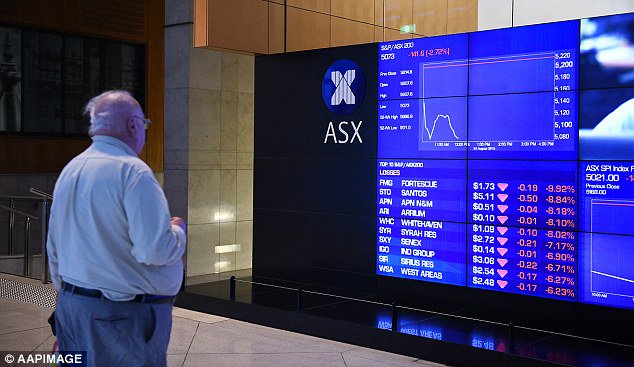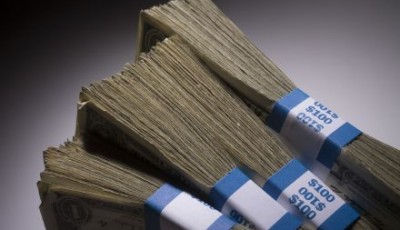Australia shares plunge to over 2 year lows dragged by China
Australian Treasurer Joe Hockey said that though markets would remain volatile for a while, the global economy’s fundamentals remained fairly strong.
The massive hit to Australia’s share market stemmed from Chinese shares falling more than 8 per cent, to about 37 per cent than its June peak.
Almost $60 billion has been wiped from the Australian sharemarket today in the heaviest fall in nearly four years.
Adding to the jitters, the Shanghai stock market was down more than 7.70 percent on Monday.
Dr Oliver said other pre-GFC ingredients – such as companies loaded up on debt, investors euphorically buying shares and rising interest rates – were not present today either.
The local market has been a sea of red throughout the day, with CMC Markets chief strategist Michael McCarthy saying it was “carnage out there”.
The major banks were all down heavily: Westpac’s 6.1 per cent slump was the worst of the four, the Commonwealth’s 4.1 per cent drop the gentlest.
BHP Billiton was down 4.7 per cent to $22.97 – falling below $23 for the first time since November 2008, during the height of the financial crisis – while Rio Tinto was off 5.4 per cent. BlueScope soared 8.6 per cent to $3.67. The steelmaker said this morning that its full-year underlying profit rose 9 per cent to $134.1 million, but depressed steel prices and excess supply was undermining the group’s competitiveness.
Electronics retailers Harvey Normand and JB Hi-Fi were down around 3.6 and 5 per cent respectively, while department store Myer was off 3 per cent.
Even more “defensive” stocks were being sold down: Telstra was down 3.1 per cent to $5.88, while supermarket heavyweights Woolworths and Wesfarmers were off 4.1 and 1.9 per cent respectively.
The Australian dollar also hit a fresh six-year low of US72.01c as the continued fall in the price of key industrial commodities darkened the outlook for the resource-led Australian economy.
He said China’s economy was growing at a 7 per cent annual pace and was “maturing and rebalancing” towards greater household spending.
While joining the panic and selling out of shares now will lock in your losses, Mr Spooner said some good value might be emerging in some sectors, although it might be wise to wait a while until things settled down.
“We shouldn’t get overly concerned about what’s happening in China, because the authorities are actually doing something about it, if they weren’t if they were sitting on their hands we’d be anxious “.
China is Australia’s No. 1 trading partner, and a surfeit of grim indicators in the world’s second-largest economy has forced investors across the globe to dump stocks.
St George senior economist Josephine Horton said US bond prices were bolstered on Friday night, driven by safe-haven flows on the back of equity market falls.
European stocks also declined sharply, with the Euro Stoxx 50 and German DAX down 2.2 per cent and 2.3 per cent, respectively, in volatile trading.












